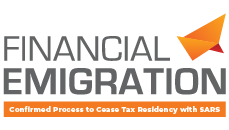South Africa is one of the expatriate jurisdictions where proactive planning makes a significant difference to the tax and exchange control implications of an international mobile employee. The primary reasons are:
- Unlike most other countries, with good planning, you only become ‘tax resident’ in the beginning of your sixth year in South Africa; and
- There are various tax provisions which provide specific tax relief for expatriate employees, as well as various South African Revenue Service (SARS) practice notes and binding rulings that gives additional relief.
Typical mistakes you should avoid:
The following are examples of things that may sound like a good idea, but, from a South African tax perspective, is not:
- Open ended contracts and applying for permanent residency too soon. These are examples of items which SARS and the South African Reserve Bank often use to determine whether you have an intention to reside permanently in South Africa thus making you ordinarily resident and therefore, tax resident in South Africa. Not only will you then be liable to tax in South Africa on world-wide income, but you will also be subject to South African exchange control regulations. We have in recent months defended expatriates who SARS held to be tax resident in South Africa on the basis of an open ended employment contracts. Good planning would be entering into a fixed term contract with the option to renew.
- Housing or accommodation related allowances are never good ideas because they are fully taxable with no tax relief. Company provided accommodation either directly or through outsourced provider qualifies for various exemptions.
- Expatiates based in South Africa but who travels internationally qualifies for various exemptions. Whilst the principles are complex and there is no ‘one-size –fits-all’, it dates back to 1946 and states that days worked outside South Africa by a non-resident is exempt from South African tax.
A word of caution:
Whilst South African tax law has favourable provisions for expatriates, SARS has a dedicated audit focus on expatriates, for example, in the SARS standard payroll questionnaire, there is an entire section dealing with expatriates to ensure correct treatment and to identify abuse of favourable provisions.
The rule of thumb is that the employment contract or secondment agreement should be optimally structured from a tax perspective. This must be done before the work permit application.
Information provided by www.taxconsulting.co.za
